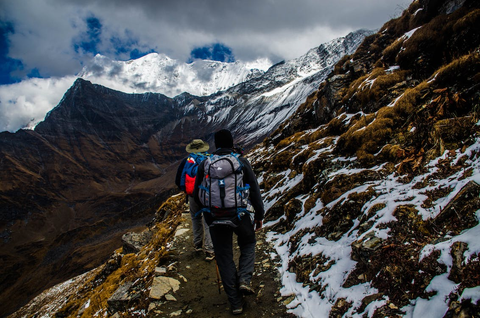Hiking is a thrilling and rewarding outdoor activity that allows individuals to connect with nature while engaging in physical exercise. Whether you are a seasoned hiker or a beginner, having the right gear and being adequately prepared can make a significant difference in your hiking experience. In this comprehensive guide, we will explore essential hiking gear and preparation tips, with a focus on ultralight hiking backpacks and daypacks.
Ultralight hiking backpacks are made from durable yet lightweight materials such as ripstop nylon or Dyneema. These materials strike a balance between durability and weight, ensuring
that your backpack can withstand the rigors of the trail without adding unnecessary pounds to your load. Look for backpacks with reinforced seams and high-quality zippers to enhance longevity.
Additionally, consider the capacity of the backpack based on the length of your hikes. For day hikes, a smaller daypack for hiking is ideal, typically ranging from 20 to 30 liters. On the other hand, if you plan on embarking on longer journeys or overnight trips, opt for a larger ultralight hiking backpack with a capacity of 40 liters or more.
Hiking Equipment: Organizing Your Gear
Once you have the right backpack, it's essential to organize your gear efficiently. Most ultralight hiking backpacks come with multiple compartments and pockets designed to help you distribute the weight evenly and keep your essentials easily accessible.

Pack your gear strategically, placing frequently used items in accessible pockets. Use stuff sacks or packing cubes to compartmentalize your clothing and gear, making it easier to locate items without having to rummage through your entire backpack. Keeping your gear organized not only enhances convenience but also ensures a well-balanced load, contributing to a more comfortable hiking experience.
Footwear: The Foundation of Your Hike
Choosing the right footwear is paramount for a successful hike. Ill-fitting or uncomfortable shoes can quickly turn an enjoyable hike into a painful experience. Invest in a pair of sturdy hiking boots or trail shoes that provide proper support, traction, and protection for your feet.
For day hikes, lightweight and breathable trail shoes may be sufficient. However, for longer treks and challenging terrain, opt for hiking boots that offer ankle support and durability. Break in your footwear before hitting the trail to prevent blisters and discomfort during your hike.
Clothing: Layering for Comfort and Protection
Proper clothing is essential for both comfort and protection during your hike. The key is to dress in layers, allowing you to adjust to changing weather conditions and maintain a comfortable body temperature. Start with a moisture-wicking base layer to keep sweat away from your skin, followed by an insulating layer for warmth, and finish with a waterproof and windproof outer layer.

Additionally, consider packing a hat, sunglasses, and sunscreen to shield yourself from the sun's rays. In colder weather, bring gloves and a beanie to retain heat. The goal is to be prepared for a variety of weather scenarios, ensuring a pleasant hiking experience regardless of the conditions.
Navigation Tools: Stay on the Right Path
A fundamental aspect of hiking preparation is ensuring you can navigate your chosen trail effectively. While many trails are well-marked, it's crucial to have the right tools in case you encounter unexpected challenges. Carry a detailed map of the area, along with a compass to help you navigate if GPS signals are unavailable.
Modern technology offers GPS devices and smartphone apps specifically designed for hiking. These tools provide real-time tracking, trail maps, and even emergency features, enhancing your overall safety on the trail. However, it's important to carry a backup power source for electronic devices, such as a portable charger or extra batteries, to prevent being left without navigation capabilities.
Hydration and Nutrition: Fueling Your Adventure
Staying properly hydrated and nourished is vital for a successful hike. Bring a sufficient supply of water, preferably in a hydration system or water bottles. Ultralight hiking backpacks often come equipped with hydration sleeves and tube ports for convenient access to water on the go.

Additionally, pack energy-rich snacks like trail mix, energy bars, and dried fruits to replenish your energy during the hike. Consider the duration of your hike when planning your nutrition strategy, ensuring you have enough sustenance to keep you fueled throughout the journey.
Emergency Essentials: Be Prepared for the Unexpected
Even with careful planning, unexpected situations can arise on the trail. Being prepared for emergencies is a crucial aspect of hiking. Pack a basic first aid kit with essentials such as bandages, antiseptic wipes, pain relievers, and any personal medications you may need.
Leave No Trace: Respect Nature and Other Hikers
Responsible hiking includes following Leave No Trace principles to minimize your impact on the environment. Stay on designated trails, pack out all trash, and avoid disturbing wildlife. Minimize noise and be considerate of other hikers, allowing everyone to enjoy the tranquility of the natural surroundings.
Do you want to buy lightweight backpack for hiking, too? Tap here to shop online from Light Hiking Gear today! We also have camping chairs and camping socks available online.




0 comments